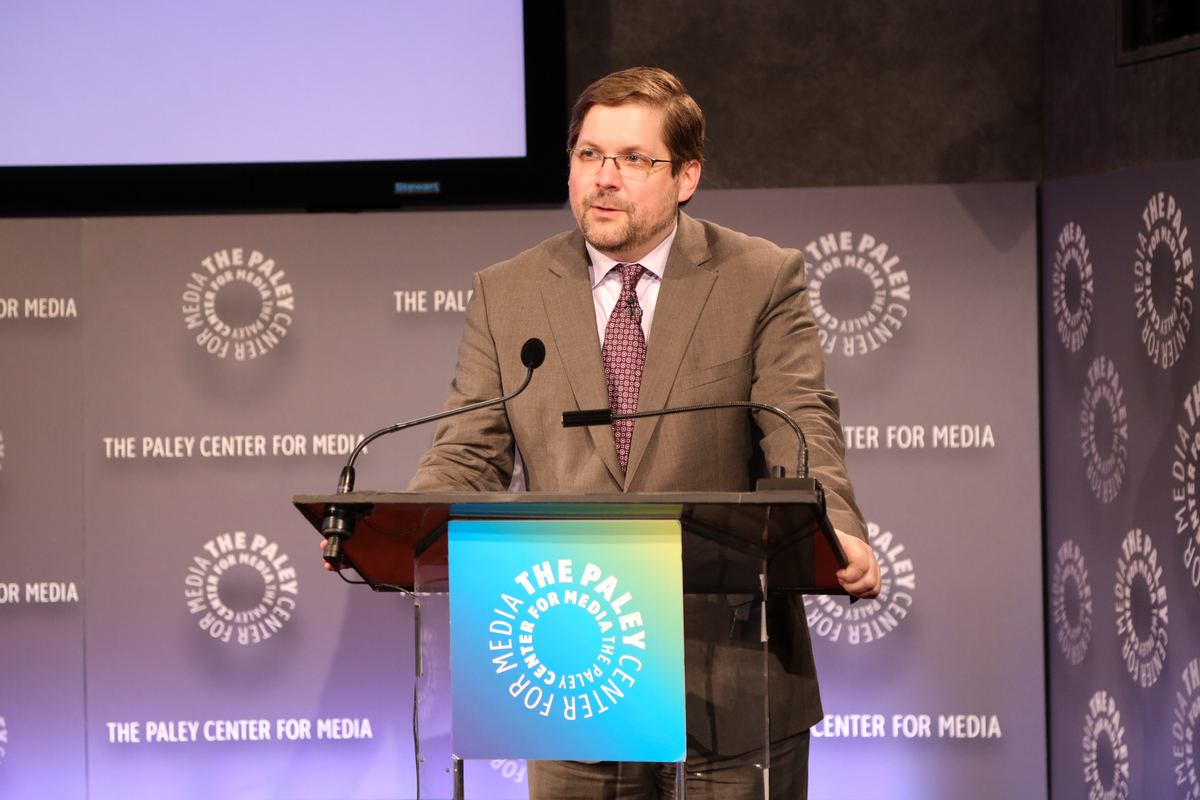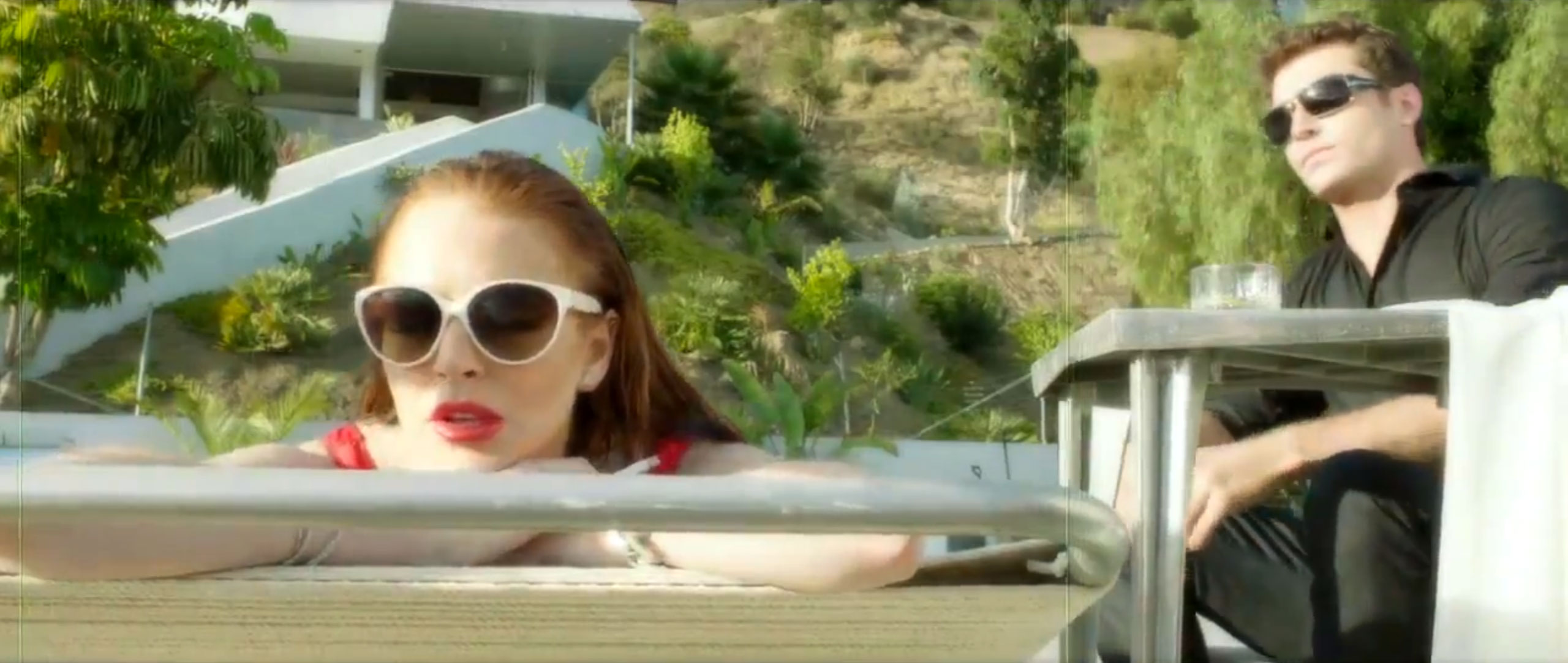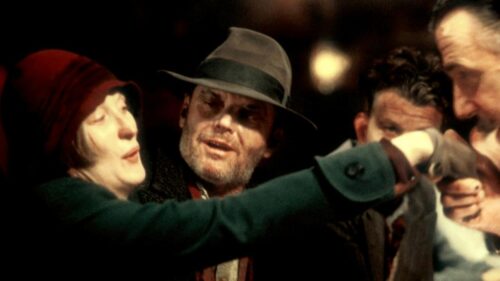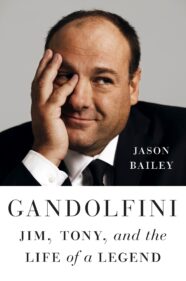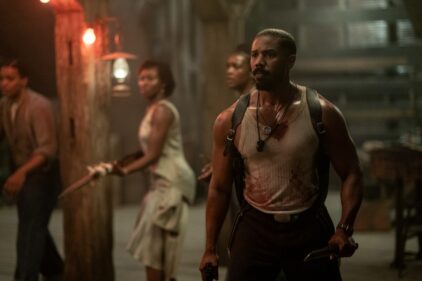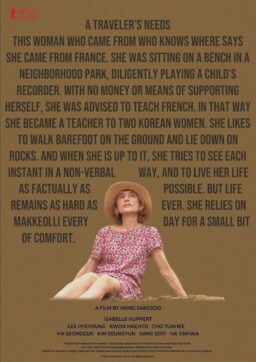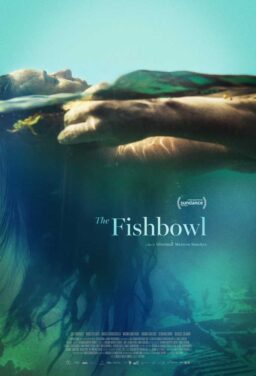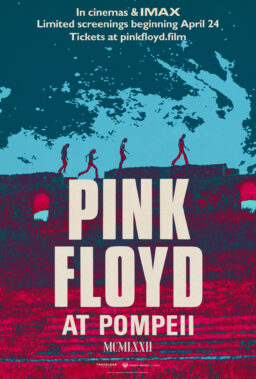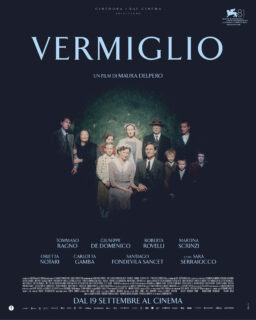Filmmaker Paul Schrader, the writer and director of “The Canyons,” often makes films that combine religion and porn. He wrote Martin Scorsese’s “Taxi Driver” and “Raging Bull” and wrote and directed “Hardcore” and “American Gigolo“, among other searing dramas. It’s no reach to trace this fixation to his childhood.
“I was a product of the Christian Reformed Church, a Dutch Calvinist sect in Michigan, and our church forbade theater attendance: No theater, no smoking, no dancing, no drinking, no rock and roll,” said Schrader, after a recent screening of “The Canyons” at The Film Society of Lincoln Center. “So I didn’t see any films as a child, but I didn’t know anybody who did, so I didn’t know I was missing anything.”
Then along came… Annette Funicello?
“I was brainwashed by ‘The Mickey Mouse Club,'” the 67-year-old Schrader continued. “”I was about 16 or 17 and this movie was coming out called ‘The Absent-Minded Professor,’ with Fred MacMurray. They were advertising it on ‘The Mickey Mouse Club.’ So I snuck out and got on a bus, went downtown in Grand Rapids, sat in the balcony way in the back so I couldn’t be seen and watched this Disney movie. Boy, was I disappointed! I thought, ‘What is their problem? Why do they hate this?'”
He’d soon understand why.
“About a year later, I was visiting some relatives in Illinois who didn’t have a strict prohibition like we did, and the kids were sent off to go see a movie in the afternoon,” he recalled. “We saw ‘Wild in the Country,’ with Elvis Presley and Tuesday Weld. And I said, ‘Okay, now I get it. Here’s the problem. I see what they’re worried about!'”
Elvis the Pelvis’ and the comely Weld’s sexual magnetism riveted Schrader, and he became a movie fanatic, earning a master’s degree in film studies at UCLA and transforming himself into a self-described “acolyte” of The New Yorker‘s big-screen guru Pauline Kael. He wrote reviews for The Los Angeles Daily News and published academic studies, then started his behind-the-camera career by cowriting the East-meets-West gangster film “The Yakuza” with his brother Leonard, an expert on Japan. More scripts followed, including “Obsession” (a recurring theme in his work) for Brian DePalma, and the William Devane revenge picture “Rolling Thunder.”
Schrader’s debut film as a director, 1977’s “Blue Collar,” was a strikingly stark love/hate letter to his home state of Michigan, featuring remarkable performances from Richard Pryor, Yaphet Kotto and “Taxi Driver” alum Harvey Keitel as Detroit auto workers trying to stick it to their industrial overlords.

Yet Schrader didn’t really begin to expose himself, so to speak, until his second film, 1979’s “Hardcore.” Set in his hometown of Grand Rapids, the impressively grimy drama stars George C. Scott, channeling his real-life rage into his best performance since 1970’s “Patton,” as Jake Van Dorn (perhaps an homage to buxom vintage pinup girl Mamie Van Doren?) an upright but uptight businessman who sends his nubile teenage daughter Kristin off to a Youth Calvinist Convention in Southern California. Idyllic scenes of children ice skating, parishioners singing hymns and families saying grace around the turkey—brilliantly shot by “Taxi Driver” cinematographer Michael Chapman—give way to images of degradation and decay on the streets of L.A. after Kristin disappears into the seedy world of skin and snuff flicks.
Jake must descend into Hell, probing the fetid underbelly of the City of Fallen Angels with a scumbag private investigator (Peter Boyle, another “Taxi Driver” vet) and investigating a sex club that offers “verbal humiliation, bondage and spanking” from girls with the spiritually suggestive names of Faith, Hope and Charity. “God is testing you,” says Jake’s devout brother-in-law (“Bewitched”‘s Dick Sargent!). “You have to have faith.”
Eventually, Jake finds his prodigal daughter in Gomorrah Central—San Francisco—at a club called the Garden of Eden. But she doesn’t want him to save her soul: “You never cared about me before….I’m with people who love me now!” Jake swears to her, “God, baby, I do love you. I just never knew how to show you… it’s just my pride.” As the Bible teaches us, the sin of pride goeth before the fall, but redemption does seem possible in this case, as Jake is able to rescue his daughter from her ungodly ways.
There was no salvaging “Hardcore” at the box office, however, despite rave reviews from the likes of Roger Ebert, who gave it four stars. What a difference a year—and the change of decades—made with Schrader’s next film, 1980’s “American Gigolo.” As slick as “Hardcore” was slimy, the movie made Richard Gere a bona fide sex symbol and featured the first truly sympathetic portrayal of a male escort. Previously, they had been treated in pop culture only with kid gloves (“Breakfast at Tiffany”‘s George Peppard) or as jokes (“Saturday Night Live”‘s Fred Garvin: Male Prostitute sketch, with Dan Aykroyd).

Gere, who stepped in after John Travolta bowed out of the role, bares all as Julian, an L.A. rent boy who feels no guilt about using wealthy older women to fund his lavish lifestyle: “roll me in designer sheets, I’ll never get enough,” as Blondie’s Debbie Harry coos in the film’s theme song, “Call Me.” (Gere would later reverse roles, playing the middle-aged client who treats Julia Roberts’ up-and-coming hooker to a Rodeo Drive shopping spree in “Pretty Woman.”) But there is a penance to be paid for Julian’s sins: He’s framed for a murder in Palm Springs and hounded by an LAPD officer named Sunday (religious symbolism alert!), played by another future “Pretty Woman” costar, Hector Elizondo.: “Doesn’t it ever bother you, Julian—what you do?” His conscience is clean: “Giving pleasure to women, I’m supposed to feel guilty about that?… Legal is not always right. Some people are above the law.”
Only the love of a God-fearing woman, a politician’s wife named Michelle (Lauren Hutton), who wears a cross around her neck that Julian admires in bed, can save him. In the end, she tells him she’ll bear false witness for him during a jailhouse visit that plays more like a confessional. Separated by glass but trying to touch her hand, Julian proclaims, “My God, Michelle, it’s taken me so long to come to you.” You can leave “Michelle” out of that line to understand Schrader’s real message.
“American Gigolo” was a huge hit, so Schrader reteamed with producer Jerry Bruckheimer, composer Giorgio Moroder and cinematographer John Bailey for his next film, a remake of the ’40s horror classic “Cat People.” The first directorial effort he didn’t write—Alan Ormsby loosely adapted DeWitt Bodeen’s original script—it’s Schrader’s first film set in a surreal world rather than being grounded in gritty reality. While it prefigures “True Blood”‘s New Orleans gumbo of graphic sex and supernatural gore, it demonstrates “Cat People” didn’t merit two lives (or three, if you count the first film’s ill-fated sequel, “The Curse of the Cat People”), muchless nine.

Nastassia Kinky—er, Kinski—and “A Clockwork Orange”‘s Malcolm McDowell prowl around ridiculously as siblings Irina and Paul Gallier, the sole survivors of an ancient race who turn into felines (and not pussycats) when they’re sexually aroused: “We are an incestuous race,” it’s explained. “We can only make love with our own and before we can become human again, we must kill.” Paul tries to get Irina to engage in heavy petting (pun intended): “I’m the only one who can touch you and you’re the only one who can touch me. We’re safe together because we’re the same.” She resists, and Paul feeds on prostitutes and female runaways, eating them alive and ripping out their genitals. “Every time I pray it won’t happen again,” he tells one dumbbell bombshell he picks up in a cemetery before shape-shifting into a black leopard and devouring her.
Described by a cop as a “religious fanatic,” Paul was “raised by carnival people, lion tamers, until they blew their brains out.” You may feel like doing the same thing while watching this badly dated howler. Schrader lays on the religious imagery thickly—Irina wakes up naked in the Garden of Eden and tempted by a serpent—but he proves this Cat can’t land on its feet. Oh well, at least it’s still slinkier than Halle Berry’s stinker “Catwoman.”

“Cat People” turned out to be a dog at the box office, so Schrader headed back East with his brother Leonard, who cowrote his next film, “Mishima: A Life in Four Chapters.” The narrative cross-cuts between scenes of the celebrated Japanese author Yukio Mishima’s life—including the attempted coup he led with his private army in 1970 that led to his ritual suicide by seppuku—and intentionally stagey adaptations of his often-erotic writings. Sex, violence and faith collide once again as a Zen-acolyte stutterer loses his virginity to a prostitute; a vicious female loan shark buys the son of one of her debtors and uses him as her personal sex slave before committing murder-suicide; and self-hating homosexual Mishima masturbates to a religious-themed painting of Saint Sebastian with arrows protruding from his torso. Accompanied by a hypnotic Phillip Glass score, “Mishima” beautifully illustrates Schrader’s obsessions. “A writer is a voyeur par excellence,” the author declares, and the same can be said for the auteur. Schrader seems to identify profoundly with Mishima, who quips at a press conference to promote one of the films he’s directed, “I’d like to be Elvis Presley.” It’s “Wild in the Country” all over again, only this time the country is Japan.
Perhaps not surprisingly, the heavily subtitled and just plain heavy “Mishima” crashed and burned at the U.S. box office, and Schrader strayed from the path of sin and skin with his next round of films. He explored his fascination with rock and roll in the miscast Michael J. Fox-Joan Jett drama “Light of Day,” recreated one of the ’70s’ most sensational tabloid stories with the underrated “Patty Hearst” and flirted with voyeurism again with the Venice-set couples drama “The Comfort of Strangers”; but for the most part, these films reflected the passions of their authors, novelist Ian McEwan and screenwriter Harold Pinter, more than Schrader’s own recurring motifs (although there is a key scene set at Saint Mark’s Basilica in Rome).
Schrader varied his tone and style during this period, but tread gently upon sex, violence and obsession. “Light Sleeper” (1992) felt in many ways like a remake of “American Gigolo,” with Willem Dafoe standing in for Gere and drugs standing in for sex. Schrader lightly touched on religion with his 1997 Elmore Leonard adaptation, “Touch,” about a faith healer (Skeet Ulrich). After the triumphant “Affliction”, a father-son murder mystery psychodrama based on Russell Banks’ novel, he plummeted into soft-core purgatory with the laughable love-triangle potboiler “Forever Mine” (with Ray Liotta, Joseph Fiennes and Gretchen Mol).

Finally, Schrader brought his unholy trinity of blood, boobs and the Bible back together again with 2005’s “Auto Focus.” A biopic of Hogan’s Heroes star Bob Crane (Greg Kinnear, in a performance that’s as good as it gets), the film traces the degradation of a once-devout Catholic—early in the story, he’s seen at Mass with his wife and kids, receiving the Word that “God will come again to judge the living and the dead.” The radio DJ’s gateway drug to the world of swingers and self-made sex tapes (before they became cool for celebs to do) is his drum set. He starts sitting in with the band at a strip club called Salome’s—religious symbolism alert!—and soon meets the devil himself in the person of Carpenter (Dafoe, who played Jesus in The Last Temptation of Christ—now, that’s range). A hi-fi installer, Carpy introduces Crane to VTRs (Video Tape Recorders) and S&M. Bob strains to uphold his family-man façade, starring in Disney’s dud Superdad and telling a Christian-magazine writer (played by Bob Crane, Jr.!) the secret to his 15-year marriage is “When I get tense, I blow off steam.” Responds the journalist, “That’s inspirational.”
Even as his marriage and career crumble, Crane maintains, “I’m a normal red-blooded American man. I love breasts. Tits are great!” But his sexual compulsions spin out of control. “He’d hit on the Virgin Mary with Jesus standing right there,” cracks his sitcom costar Richard Dawson. “Sex is not the answer,” his longtime manager (a poignant Ron Leibman) tells him. Replies Crane, “No, sex is the question and ‘Yes’ is the answer.” But when he tries to excommunicate the creepy Carpy, who calls him “Pop” and “Big Daddy”—”I’m sick of scoring broads for you”—Crane is brutally beaten to death with his camcorder’s tripod. (Phallic symbol alert!) Carpenter was tried for the crime but never convicted, and from beyond the grave, “Sunset Boulevard”-style, Crane forgives him in voiceover: “He was a cool guy, in his way. That’s how it is: Men gotta have fun.”
Schrader’s next few films were no fun at all—”Dominion: Prequel to the Exorcist” was reshot by Renny Harlin (oh, the inhumanity!); “The Walker” was another unofficial “American Gigolo” remake, with Woody Harrelson trying and failing to get into Gere mode as an aging piece of arm candy; and the Holocaust drama “Adam Resurrected” barely got released, despite praiseworthy performances from Dafoe and Jeff Goldblum.

All of which somehow leads us to “The Canyons”, and Schrader back to his favorite topics. The long-ago Mouseketeer Lindsay Lohan and real-life porn star James Deen play vapid L.A. showbiz types who are constantly on their Smartphones, setting up three- and four-ways with random strangers and making amateur sex movies.
Still, “to be honest, this film is not about porn,” Schrader said after the Lincoln Center screening. “It happens to have an adult star as a lead. But it’s about the hookup culture, and that’s different than pornography. Just because James comes from this world doesn’t mean it’s about that. ‘Auto Focus’ and ‘Hardcore’ were much more about porn.”
So what is “The Canyons” about? According to Schrader, who partially financed the $250,000 direct-to-VOD film through Kickstarter, its theme is “the death of cinema” (gorgeous photos of abandoned theaters punctuate the opening and closing credits). And if you think the movie is “cold and dead at the center,” as one critic complained, that’s precisely the point: “We set out to make a film that’s cold and dead at the center.”
“The Canyons” succeeds in all those goals, though whether they’re worth achieving is another matter. Schrader claims the film is more representative of the work of the film’s screenwriter, novelist Bret Easton Ellis (“Less Than Zero”), than his own. The author feels the opposite is true, but when Deen’s character ultimately exhibits violent, sociopathic behavior, the film feels like a mishmash of Ellis’ most (in)famous works: “American Psycho” meets “Less Than Zero.” Call it “American Zero.”
Aside from Dean’s character’s name—Christian—and a “Thy Will Be Done” tattoo across the chest of one of his sex partners, “The Canyons” features no overtly spiritual content. While Schrader denies that the film is about porn, “what’s terribly interesting is these kids in this movie—I’m a generation away from Bret, and Bret’s a generation away from them—are the result of the post-porn generation. These are kids who have been raised in a world full of Internet pornography. How can that not affect someone’s moral ecosystem? I don’t know. All our cultural artifacts now come with the notion that we have to raise our children in a sea of pornography.”
“The Canyons” dives into that sea, and skinny-dips without shame.
So why did a boy who grew up with no exposure to porn grow into a man obsessed with it?
“When you tell stories and make movies, you deal with some very primal stuff. And sex and violence—kiss kiss bang bang—is as primal as it gets,” Schrader said, incidentally quoting the title of one of his mentor’s collections of film reviews. “So of course you’re going to start circling that.”
Bruce Fretts is Articles Editor of TV Guide Magazine and has been a feature writer and critic for Entertainment Weekly.
